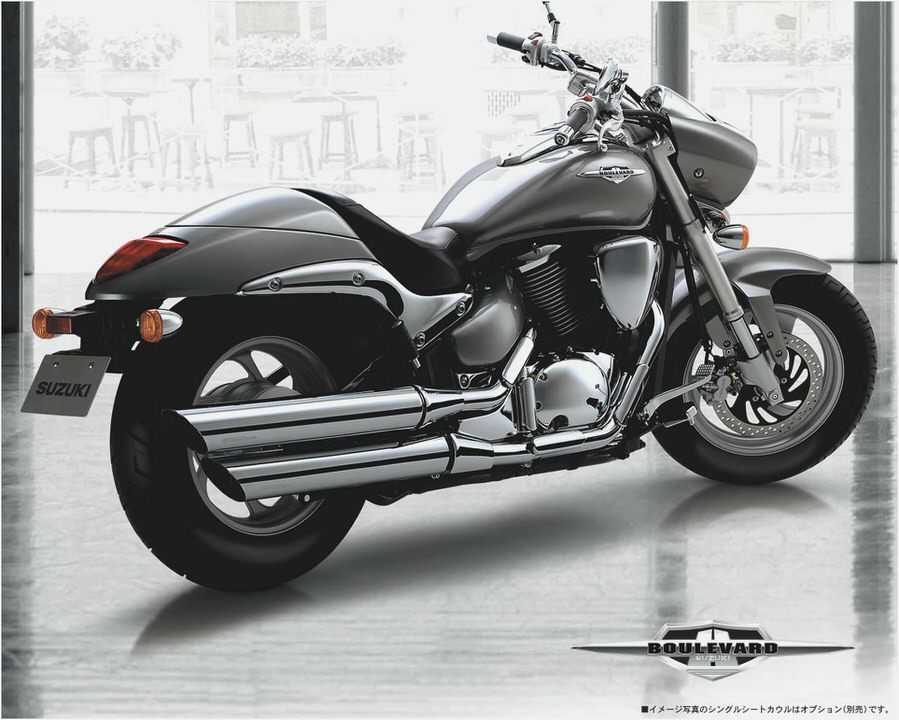
2006 Suzuki Boulevard M109R Rider Test
I immediately had the impression that this baby could kick the sorry behind of most other stock bikes in terms of torque and power, yet out in the twisties it was also a hoot.
Photo Credit: Scott Hirko
About a year ago I rode one of those big V-twins made by a low-volume alternative or “clone” manufacturer, a 100-incher with about 100 horsepower, torque like an earthmover and a rear tire wider than the ones on my van. At idle it would sit there going rump-rump-rump, and you could feel the pulses in the frame.
When you let out the clutch and got on the gas it would gather itself up and flat leap off the line, yanking your arms straight and squirming the tire as the sound welled up around you. Riding the new Suzuki Boulevard M109R reminds me of that experience—a lot.
2006 Suzuki Boulevard M109
In the world of the Big Four cruisers from Japan, Suzuki has long played the backmarker—the one company that failed to take full advantage of the huge metric cruiser wave that’s been cresting for the past two decades. While the other guys were moving container loads of big-inch Vulcan, Star and VTX V-twins, Suzuki’s Intruder line was dated by comparison and the bikes were rather modularized, marginalized and not as easily customized. When you checked out the metric division at the local custom bike show, Suzukis were conspicuous by their absence.
For 2004, Suzuki decided that it was necessary to start rumbling in a new and more aggressive direction, so it not only consolidated its entire cruiser line under the name Boulevard, but also updated several models. To relate them more to the American market, Suzuki now designates it cruisers by their cubic-inch displacement rather than by cubic centimeters, and attached the prefix S (for stylish), C (for classic) or M (for muscle).
The LCD tachometer atop the bar looks like an evil robot head.
And boy, does this 109-cubic-inch M109R have muscle! Your first hint of this bad boy’s sinister intent is that 8.5-inch-wide, 240-series rear tire. My confirmation of the bike’s power occurred in just taking it up to speed for the first time on the freeway.
I immediately had the impression that this baby could kick the sorry behind of most other stock bikes in terms of torque and power, yet out in the twisties it was also a hoot.
To power its cruiser flagship, Suzuki designed a new liquid-cooled, 1,783cc (OK, 109-cubic-inch) V-twin with dual overhead cams, dual crankpins and a wide vee angle of 54 degrees—that’s to keep engine height manageable. Inside is a pair of big 112mm forged-aluminum pistons that wear fashionably short skirts as they slide up and down a relatively short 90.5mm stroke at dizzying speeds.
They’re helped in part by Suzuki’s Composite Electrochemical Material (SCEM) cylinder coating that’s been used in its GSX-R sportbikes and offers optimal heat transfer and a tighter fit between the pistons and cylinders. The use of a 10.5:1 compression ratio assures that the big Suzook must sup on a minimum of 90-octane fuel. A company spokesman stated that one reason for the M109R was to appeal to older Suzuki riders who had owned GSX-Rs and wanted to slow down and cruise—but not slow down too much.
To power its cruiser flagship, Suzuki designed a new liquid-cooled, 1,783CC (OK, 109-cubic-inch) V-twin with dual overhead cams, dual crankpins and a wide vee angle of 54 degrees.
While the more classically styled cruisers tend to have an airy, open, upright stance, the M109R looks massive, hulking, low, thick and mean, with a decided forward thrust. The neat forward-sloping fairing with its chromed swoosh houses a clear-lens headlight, and is mimicked at the back by that plastic housing that may be used in place of the standard rear seat. All lines converge on the wide, dished-out rider’s seat.
That chromed air-cleaner cover is wedged between massive cylinders with their polished fins, which in turn are bookended by the shrouded radiator at one end and the side covers—not much light gets through this dense machine.
Park your fanny in the wide seat and notice that the tank is wide, but the view forward has that distinctly clean look of a custom bike. The analog speedometer is placed in a chromed nacelle on the tank, while up on the chromed handlebar, nestled between those huge, clean, 9-inch brushed aluminum risers, is the businesslike LED tachometer housed in a chromed pod. The only way to make it cleaner would be to route the cables and wires through the handlebar.
To hold it all together Suzuki has utilized a high-tensile, double-cradle, tube-steel frame with a male-slider cartridge fork having large 46mm stanchions and 5.1 inches of travel.
The key resides down by the rider’s left thigh, and thanks to electronic fuel injection with its new Idle Speed Control system, cold starting and idle speed are handled automatically with no need for a manual control. Get ’er idling and what a delicious sound, a hollow, thumping bark that seems to well up around the rider and may well annoy the neighbors. Most big-inch cruisers develop their power in the basement, then blast it
briefly till it falls off at a redline of around 5,500-6,000 rpm. Suzuki, on the other hand, has chosen through its comparatively short-stroke design to move the M109R’s power up higher into the rev range. It doesn’t start building significant torque till about 2,500 rpm, and redline is an unusually lofty (for a V-twin cruiser) 7,500 rpm.
Radial-mounted front calipers provide aggressive stops.
Another factor in the bike’s high-rpm powerband is that the M109R inhales through a pair of unusually large 56mm throttle bodies, but the dual throttle valve system (SDTV) is designed to maintain optimal air velocity from low through midrange rpm. SDTV operates in concert with the tuned two-into-one-into- two stainless exhaust system, and two spark plugs per cylinder to promote cleaner burning. It works; check the dyno figures.
Suzuki fitted the M109R with a cable-actuated clutch, and ours exhibited unusually notchy shifting for such a high-end bike. It gnashed and snarled at times going into first gear, and was also notchy in other gears. However, once it got into gear it stayed there. Clutch lever effort is, shall we say, manly.
With the engine belting out its lumpy idle we chunked it into gear and, once rolling, holy mother of pearl, did that thing pull! Give it heavy throttle low in the rev range, and the M109R shudders and pounds through the seat like a built bike, but as soon as it crosses about 2,500 rpm the engine smoothes out and remains so up to redline. Dual crankpins, along with six rubber engine mounts, assure that “character” stops short of annoying vibration.
Gone are the days when cruisers were automatically regarded as one of the least comfortable bikes around. The big Boulevard’s seat is a dream—broad, flat and with just the right thickness and compliance of foam. It floats the rider 27.8 inches off the pavement.
The wide, flat bar and forward-placed pegs bend the rider forward and it’s a reach, but at 6 feet in height I did not feel inordinately stretched. Shorter riders, however, may feel a bit pretzeled by the seating position.
The M109R is fun in the curves; back off when your heels start to drag.
We’ve watched with interest over the years as the custom-bike builders, in cooperation with the aftermarket, have introduced bikes with ever-wider rear tires. The 250-series tire was a sensation six or eight years ago, and now the market is salivating over 330-series and larger rear skins. These translate to wheel widths of from 8-11 inches or more.
The Boulevard M109R, with its low-profile Dunlop Sportmax 240/40-R18 radial, carries one of the widest stock rear tires going. By the way, the 40 in the 240/40 size refers to the tire’s aspect ratio, and indicates that it is only 40 percent as high as it is wide. The real question is how well it works in concert with its 130/70R-18 front tire, with its aspect ratio of 70.
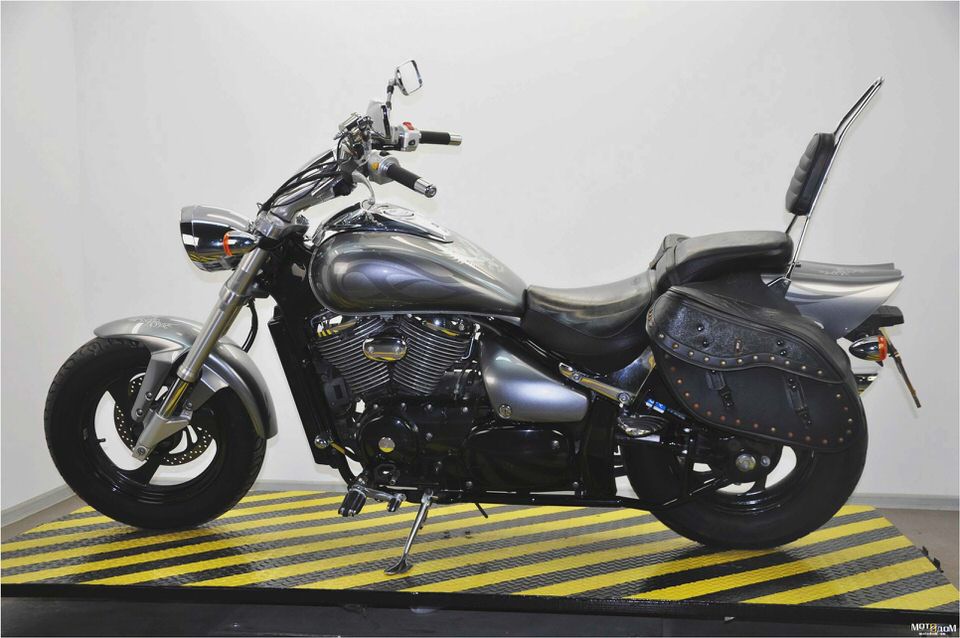
With its 67.3-inch wheelbase, 31.15 degrees of rake and 4.9 inches of trail no one expects this incredible hulk to offer crisp handling. Its narrower front tire allows the bike to initiate the turn well, but once leaned over the wide, somewhat flat profile of the rear tire causes the bike to want to stand up. Through turns the rider must maintain some pressure on the handlebar to maintain the lean and keep the bike down.
Meanwhile, if you get a little too frisky and lean too far your heels will be brushing the pavement. A bike with such an impressive engine must have controllable performance, and thank goodness Suzuki has given its biggest Boulevard both suspension and brakes to match. The cast aluminum alloy swingarm is hooked to a progressive link-type shock absorber that’s adjustable for spring preload only, and delivers 4.7 inches of travel.
It’s quite well damped, and it wasn’t until we had the bike well heeled over and pushing hard in the turns that we started wishing for more rebound damping. Though non-adjustable, the 46mm male-slider fork is likewise well damped and controlled.
The M109R’s front brakes are dual discs based upon those used on Suzuki’s race-proven GSX-R sportbikes, with radial-mounted four-piston opposed calipers grasping 310mm rotors. In the rear is a single disc with a two-piston, pin-slide caliper and a single 275mm disc. Braking is sure and very controllable, but at 765 pounds wet, this is a heavy bike and it also demands a manly grip on the brake lever.
Fortunately, the wide flatter profile of the rear tire helps make the big bike easier to roll up and hoist off the sidestand.
Does this tire make my butt look skinny?
If you want to take your honey for a ride, your new Boulevard comes with both a standard passenger seat and a seat cowling. We found the rear seat firm, wide enough, and the seating position a fairly roomy perch for the passenger. Switch to the cowling, and there’s room underneath for perhaps a pair of gloves.
Like previous Suzuki cruisers, the all-of-a-piece modular styling of the biggest Boulevard does not lend itself to easy bolt-on customization. In fact, Suzuki’s Web site does not show a single bolt-on for the M109R, and Suzuki says that only some windscreens, bags and seats are in the works. Apparently you’d better really like the style of the M109R as it comes from your dealer, as it’s not going to change appreciably unless you spend some considerable bucks with a customizer.
As for the M109R’s styling, you can judge for yourself. We liked the swoop of the front end, the wide rear tire, the LED taillight and those impressive exhausts. While the tank has that flowing, sculpted look of a stretched, custom item, its bottom flange betrays the fact that it’s a mass-produced unit.
It holds 5.2 gallons (4.9 for California models), and our test bike averaged 36.4 miles per gallon. Of course, part of the reason for this low figure is that it’s just so darn much fun to twist that throttle.
Want one of the meanest, most tailkickin’ cruisers on your block? The motor is the message with the biggest Boulevard. It’s fun, it’s fast, and when you crack the throttle it will plaster a 109-inch grin on your face.
Just be prepared to deal with the neighbors.
2006 Suzuki Boulevard M109
Base Price: $12,399
Warranty: 1 yr. unltd. miles
Type: Liquid-cooled, transverse
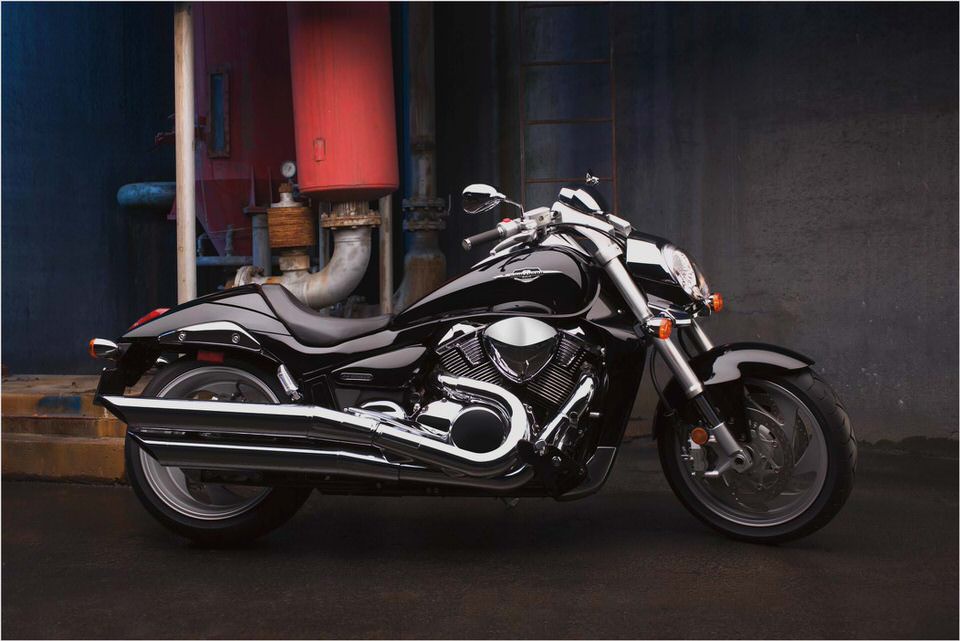
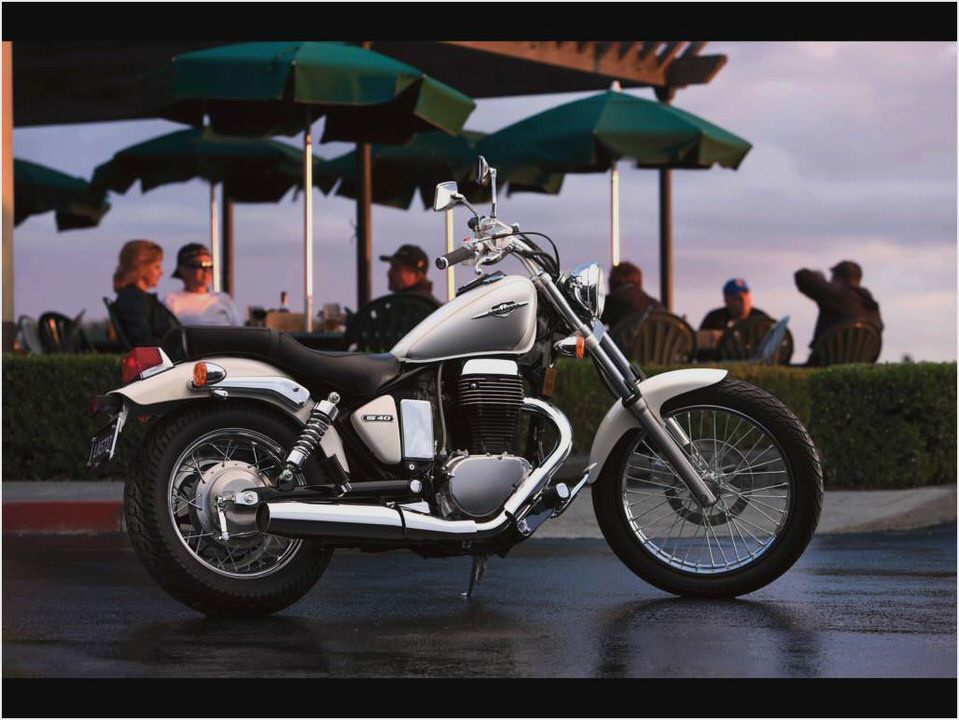
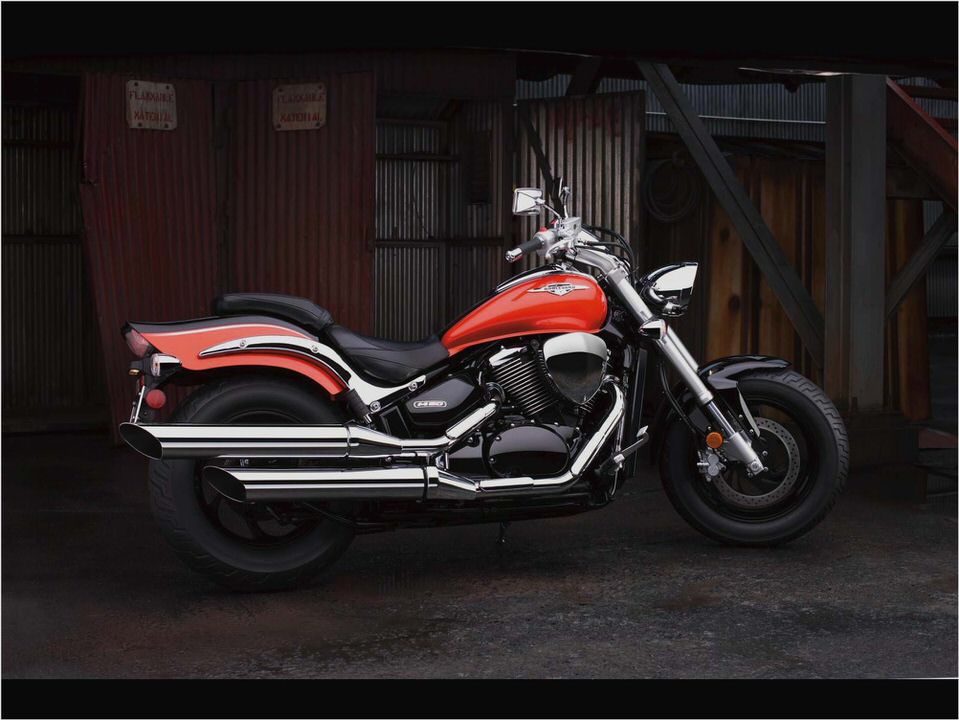
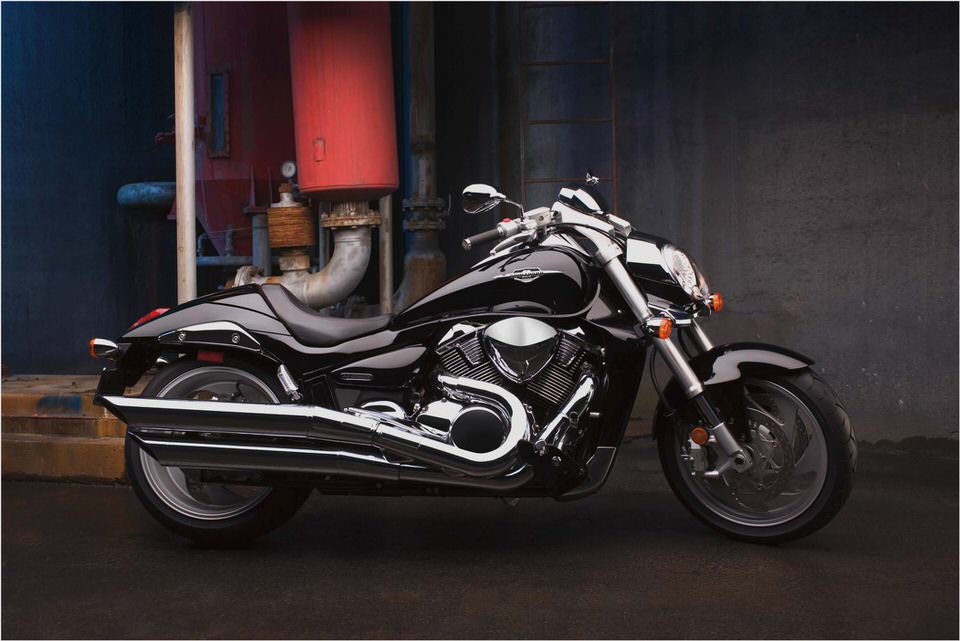
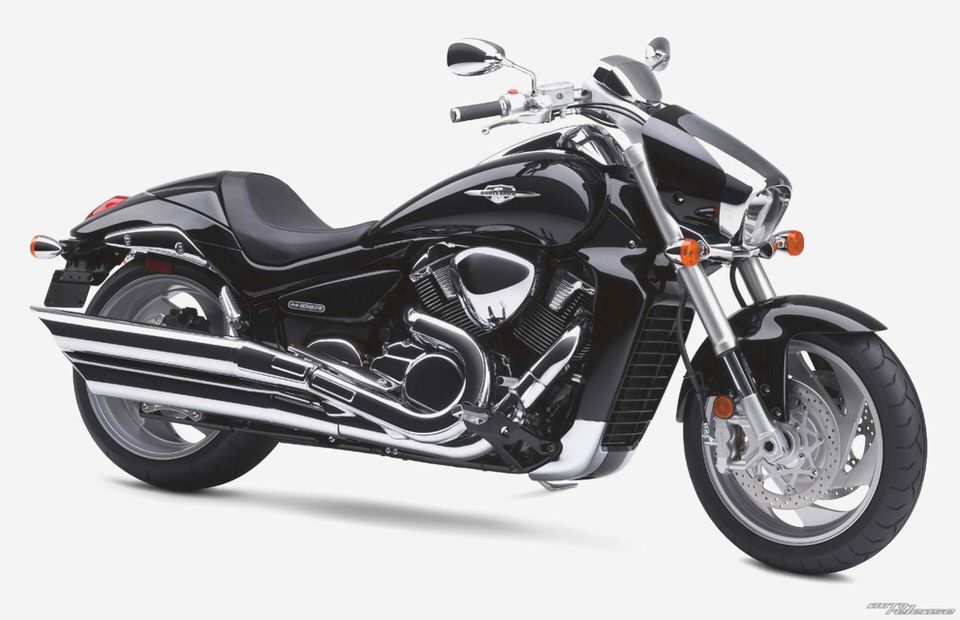
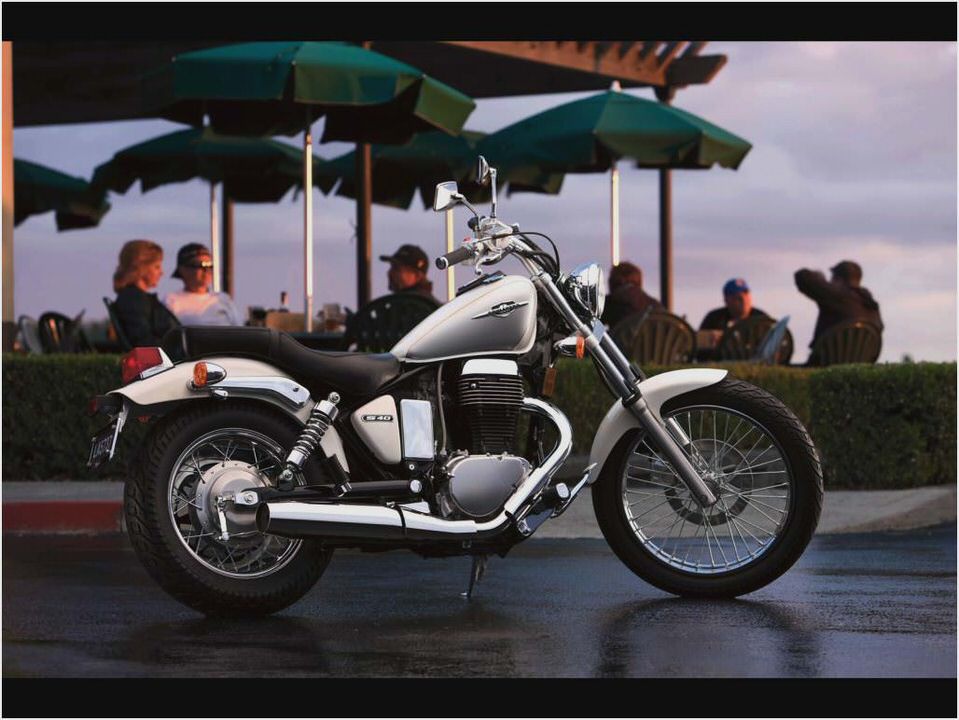
- 2004 Suzuki RM 125 – Test Ride – Review – Dirt Rider – Dirt Rider Magazine
- Suzuki RF900 R Motorbikes
- 2001 Suzuki RM Motocrossers: Completely New 125 and 250 …
- Suzuki TU250X – Cyclepedia
- Suzuki GSX 1250FA Review New Motorcycles New Zealand
